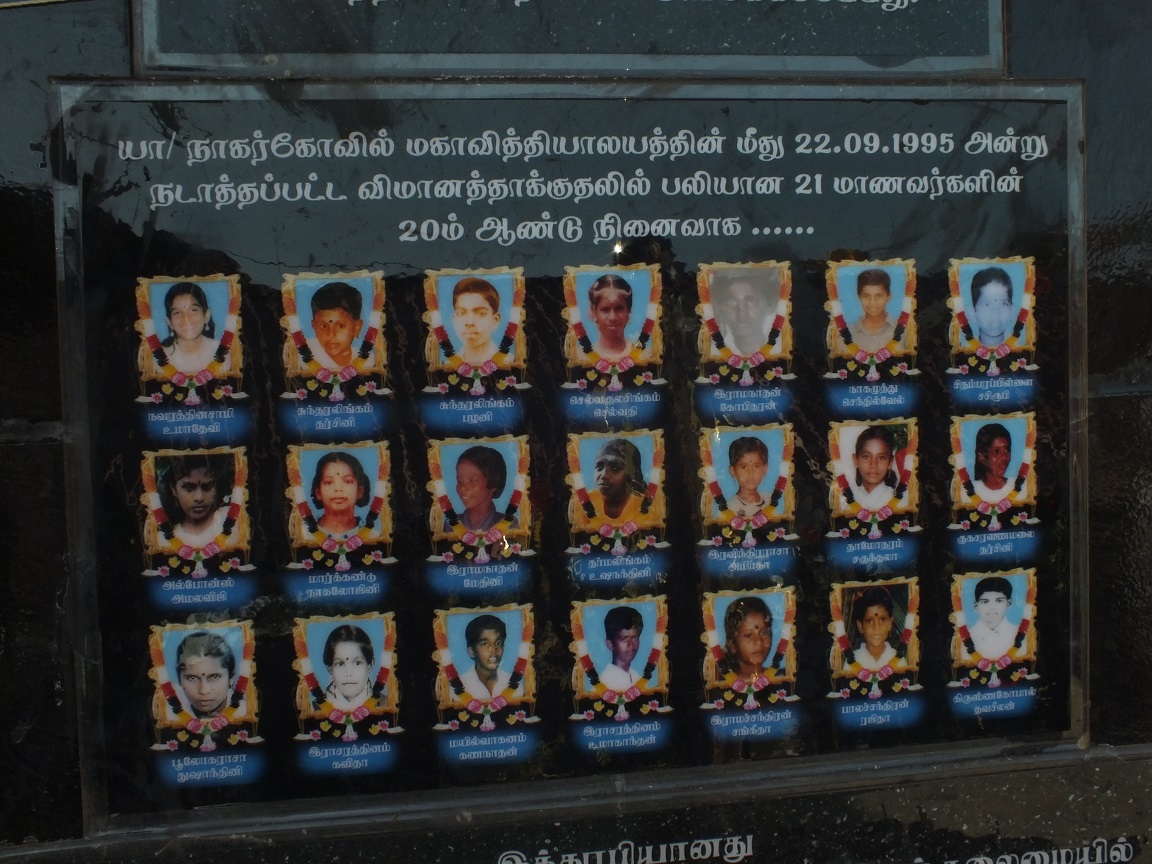I was 11 years old. It was just after lunch on Friday the 22nd of September 1995. That’s when we heard a large aircraft circling our village. The Sri Lankan Air Force dropped the first bomb nearby the school.
I heard my friends screaming and running and then all of a sudden the whole place was chaotic. I can still see it.
When I ran out of the school, the first thing I did was hide in a massive tamarind tree. There were many other children under this tree. We were all wearing white uniform. My house is not far from the tree, it’s directly opposite, and my mum was calling our names – all the kids’ names – and so I ran to her. I joined her and two of my younger siblings and dad.
At this point we were surrounded by large smoke, followed by a bang. There were several bombs dropped over the school, tamarind tree and other parts of the village.
We ran away from the scene towards the Murugan temple where the shaken local priest took us into the mulasthanam - the interior of the temple.
Once the plane had left we returned to our house only to find my brother fighting for his life after being cut in half by a bomb shrapnel. My friend Gopi was hanging on the tamarind tree by his intestines. Three of my cousins were killed on the spot - one was just six years old. We picked her up in pieces.
I still hold horrible images of my schoolmates being killed that day. The tree, the school, the children, were all gone.
On this day Sri Lankan Government killed 39 people, mostly school-aged children.
Chandrika Bandaranaike Kumaratunga was the President of Sri Lanka.
25 years on we maintain our rage and will continue to carry these memories to destroy Sri Lanka’s Sinhala Buddhist nationalism and the genocidal state.
- Aran Mylvaganam.
A survivor of the Nagarkovil massacre and the current spokesperson of the Tamil Refugee Council.


